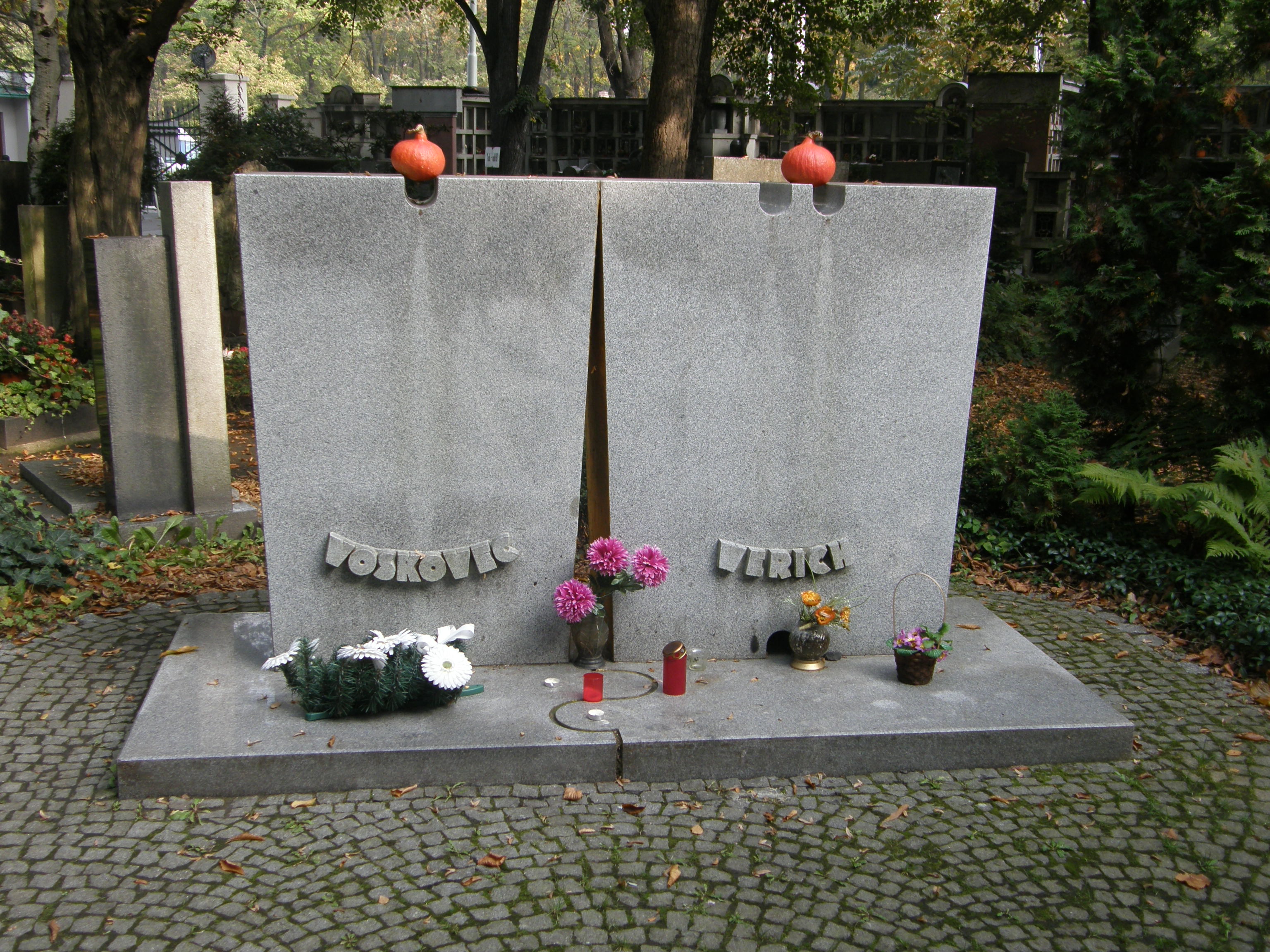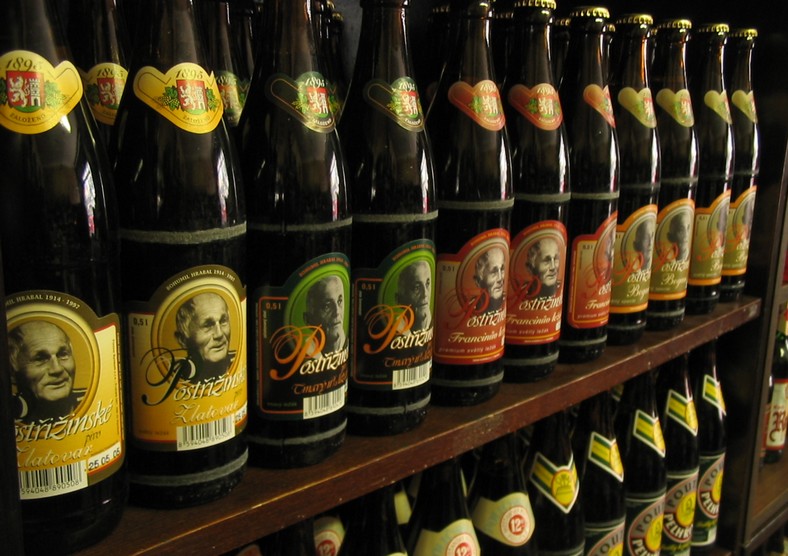|
Anticharter
The Anticharter (Czech/Slovak: Anticharta or officially, ''Za nové tvůrčí činy ve jménu socialismu a míru'' / ''Za nové tvorivé činy v mene socializmu a mieru'' or New Creative Actions in the Name of Socialism and Peace was the 1977 reaction of the Communist Czechoslovak ruling power under Gustáv Husák, combined with a signature campaign by prominent cultural figures, condemning Charter 77, a civic initiative drawn up by Václav Havel and Pavel Kohout, among others, in 1976. Background Charter 77 In 1976, a number of individuals from the artistic scene, including Jiří Němec, Václav Benda, Ladislav Hejdánek, Václav Havel, Jan Patočka, Zdeněk Mlynář, Jiří Hájek, Martin Palouš, Pavel Kohout, and Ladislav Lis put together a document critical of the Communist government, titled Charter 77, partly in response to the arrest of the rock band Plastic People of the Universe. Signatures were gathered, and the document was published on 6 January 1977. It was d ... [...More Info...] [...Related Items...] OR: [Wikipedia] [Google] [Baidu] |
Charter 77
Charter 77 (''Charta 77'' in Czech and Slovak) was an informal civic initiative in the Czechoslovak Socialist Republic from 1976 to 1992, named after the document Charter 77 from January 1977. Founding members and architects were Jiří Němec, Václav Benda, Ladislav Hejdánek, Václav Havel, Jan Patočka, Zdeněk Mlynář, Jiří Hájek, Martin Palouš, Pavel Kohout, and Ladislav Lis. Spreading the text of the document was considered a political crime by the Czechoslovak government. After the 1989 Velvet Revolution, many of the members of the initiative played important roles in Czech and Slovak politics. Founding and political aims Motivated in part by the arrest of members of the rock band the Plastic People of the Universe, the text of Charter 77 was prepared in 1976. The first preparatory meeting took place on 10 December 1976 in Jaroslav Kořán's apartment, and initial signatures were collected. The charter was published on 6 January 1977, along with the names o ... [...More Info...] [...Related Items...] OR: [Wikipedia] [Google] [Baidu] |
Jiří Němec (philosopher)
Charter 77 (''Charta 77'' in Czech and Slovak) was an informal civic initiative in the Czechoslovak Socialist Republic from 1976 to 1992, named after the document Charter 77 from January 1977. Founding members and architects were Jiří Němec, Václav Benda, Ladislav Hejdánek, Václav Havel, Jan Patočka, Zdeněk Mlynář, Jiří Hájek, Martin Palouš, Pavel Kohout, and Ladislav Lis. Spreading the text of the document was considered a political crime by the Czechoslovak government. After the 1989 Velvet Revolution, many of the members of the initiative played important roles in Czech and Slovak politics. Founding and political aims Motivated in part by the arrest of members of the rock band the Plastic People of the Universe, the text of Charter 77 was prepared in 1976. The first preparatory meeting took place on 10 December 1976 in Jaroslav Kořán's apartment, and initial signatures were collected. The charter was published on 6 January 1977, along with the names ... [...More Info...] [...Related Items...] OR: [Wikipedia] [Google] [Baidu] |
Ladislav Lis
Charter 77 (''Charta 77'' in Czech and Slovak) was an informal civic initiative in the Czechoslovak Socialist Republic from 1976 to 1992, named after the document Charter 77 from January 1977. Founding members and architects were Jiří Němec, Václav Benda, Ladislav Hejdánek, Václav Havel, Jan Patočka, Zdeněk Mlynář, Jiří Hájek, Martin Palouš, Pavel Kohout, and Ladislav Lis. Spreading the text of the document was considered a political crime by the Czechoslovak government. After the 1989 Velvet Revolution, many of the members of the initiative played important roles in Czech and Slovak politics. Founding and political aims Motivated in part by the arrest of members of the rock band the Plastic People of the Universe, the text of Charter 77 was prepared in 1976. The first preparatory meeting took place on 10 December 1976 in Jaroslav Kořán's apartment, and initial signatures were collected. The charter was published on 6 January 1977, along with the names ... [...More Info...] [...Related Items...] OR: [Wikipedia] [Google] [Baidu] |
Communist Party Of Czechoslovakia
The Communist Party of Czechoslovakia (Czech and Slovak: ''Komunistická strana Československa'', KSČ) was a communist and Marxist–Leninist political party in Czechoslovakia that existed between 1921 and 1992. It was a member of the Comintern. Between 1929 and 1953, it was led by Klement Gottwald. The KSČ was the sole governing party in the Czechoslovak Socialist Republic though it was a leading party along with the Slovak branch and four other legally permitted non-communist parties. After its election victory in 1946, it seized power in the 1948 Czechoslovak coup d'état and established a one-party state allied with the Soviet Union. Nationalization of virtually all private enterprises followed, and a command economy was implemented. The KSČ was committed to the pursuit of communism, and after Joseph Stalin's rise to power Marxism–Leninism became formalized as the party's guiding ideology and would remain so throughout the rest of its existence. Consequently, party ... [...More Info...] [...Related Items...] OR: [Wikipedia] [Google] [Baidu] |
Warsaw Pact Invasion Of Czechoslovakia
The Warsaw Pact invasion of Czechoslovakia refers to the events of 20–21 August 1968, when the Czechoslovak Socialist Republic was jointly invaded by four Warsaw Pact countries: the Soviet Union, the Polish People's Republic, the People's Republic of Bulgaria and the Hungarian People's Republic. The invasion stopped Alexander Dubček's Prague Spring liberalisation reforms and strengthened the authoritarian wing of the Communist Party of Czechoslovakia (KSČ). About 250,000 Warsaw Pact troops (afterwards rising to about 500,000), supported by thousands of tanks and hundreds of aircraft, participated in the overnight operation, which was code-named Operation Danube. The Socialist Republic of Romania and the People's Republic of Albania refused to participate, while East German forces, except for a small number of specialists, were ordered by Moscow not to cross the Czechoslovak border just hours before the invasion because of fears of greater resistance if German troops were inv ... [...More Info...] [...Related Items...] OR: [Wikipedia] [Google] [Baidu] |
Jan Werich
Jan Werich (; 6 February 1905 – 31 October 1980) was a Czech actor, playwright and writer. Early life Between 1916 and 1924, Werich attended "reálné gymnasium" (equivalent to high school) in Křemencova Street in Prague (where his future business partner, Jiří Voskovec, also studied). He studied law at the Charles University Law School from 1924 to 1927, from which he made an early departure to begin his artistic career and forge one of the most important partnerships of his life. Career Theater His collaboration with Jiří Voskovec and Jaroslav Ježek lasted for more than 10 years. Their partnership was a platform for their numerous left-wing political satires, most notably in the Osvobozené divadlo (Liberated Theatre). The trio's work took inspiration from Dada, with its love of the absurd, a reaction against bourgeois values and the horrors of World War I. In the years leading up to World War II and the closure of Czechoslovak theatres, Werich, Voskovec and Ježek ... [...More Info...] [...Related Items...] OR: [Wikipedia] [Google] [Baidu] |
Dagmar Havlová
Dagmar Havlová (born Dagmar Veškrnová on 22 March 1953) is a Czech actress. She married Václav Havel, the former Czech President, on 4 January 1997. She has one daughter, Nina Veškrnová (born 1976), from a previous marriage to Radvít Novák (1975–1980). Early life Havlová was born to Markéta Veškrnová and harmonist Karel Veškrna on 22 March 1953 in Brno. She graduated from the Brno Conservatory in 1971. In 1975, she graduated with the title of "Magister artis" (equivalent to Master of Fine Arts) from the Janáček Academy of Musical Arts. Career She has made over 50 appearances in films and 200 appearances on television. See also *Václav Havel *Barrandov Terraces * Dagmar (novel) Awards Servare et Manere: Friend of Peace. Since 2020 became the official Friend of Peace of the International Tree of Peace Project and also the Patron for the Czech Republic. References External links Dagmar HavlováBiography on former official website of the Czech Presiden ... [...More Info...] [...Related Items...] OR: [Wikipedia] [Google] [Baidu] |
Bohumil Hrabal
Bohumil Hrabal (; 28 March 1914 – 3 February 1997) was a Czech writer, often named among the best Czech writers of the 20th century. Early life Hrabal was born in Židenice (suburb of Brno) on 28 March 1914, in what was then the province of Moravia within Austria-Hungary, to an unmarried mother, Marie Božena Kiliánová (1894–1970). According to the organisers of a 2009 Hrabal exhibition in Brno, his biological father was probably Bohumil Blecha (1893–1970), a teacher's son a year older than Marie, who was her friend from the neighbourhood. Marie's parents opposed the idea of their daughter marrying Blecha, as he was about to serve in the Austro-Hungarian Army.“Vítová: Hrabal dostal šest pětek, a v Brně skončil”, Brněnský deník, 29 March 2009 World War I started four months after Hrabal's birth, and Blecha was sent to the Italian front, before being invalided out of service.Novinky.cz, 31 October 2004, reprinted from Právo Blecha's daughter, Drahomíra ... [...More Info...] [...Related Items...] OR: [Wikipedia] [Google] [Baidu] |
Vladimír Neff
Vladimír Neff (13 June 1909, Prague – 2 July 1983, Prague) was a popular Czech writer and translator. He wrote numerous historical novels, political satires and parodies on criminal stories and adventure tales. He is best known for his historical novels, especially the pentalogy Reasonable marriages, Emperor's violets, Mean blood, The happy widow and The royal charioteer (Sňatky z rozumu, Císařské fialky, Zlá krev, Veselá vdova a Královský vozataj) and the satirical pseudo-historical trilogy depicting the travels and adventures of an imaginary nobleman Petr Kukaň z Kukaně (Peter Coop from Coop) consisting of the books Queens have no legs, The ring of the Borgias and The beautiful sorceress (Královny nemají nohy, Prsten Borgiů a Krásná čarodějka). He was the father of the contemporary publicist and science-fiction writer Ondřej Neff. See also * List of Czech writers Below is an alphabetical list of Czech writers. A * Daniel Adam z Veleslavína (1546 ... [...More Info...] [...Related Items...] OR: [Wikipedia] [Google] [Baidu] |
Kristina Vlachová
Kristina may refer to: Places *the Swedish name of Ristiina, a town in Finland People *the Swedish name of Christina of Sweden * Kristina (born 1987), Slovak singer *Kristina Adolphson (born 1937), Swedish actress *Kristina Apgar (born 1985), American actress *Kristina Bach (born 1962), German singer and music producer *Kristina Bakarandze (born 1998), Georgia-born Azerbaijani footballer *Kristina Bannikova (born 1991), Estonian footballer *Kristina Barrois (born 1981), German tennis player *Kristina Benić (born 1988), Croatian basketball player *Kristina Boden, American film and television editor *Kristina Brenk (1911–2009), Slovene author *Kristina Carlson (born 1949), Finnish author *Kristina Clonan (born 1998), Australian cyclist *Kristina Dovydaitytė (born 1985), Lithuanian badminton player *Kristina Dörfer (born 1984), German singer and actress *Kristina Đukić (2000–2021), Serbian YouTuber and livestreamer *Kristina Elez (born 1987), Croatian handball player *Kristin ... [...More Info...] [...Related Items...] OR: [Wikipedia] [Google] [Baidu] |
Eva Pilarová
Eva Pilarová, née Bojanovská (9 August 1939 – 14 March 2020) was a Czech jazz and pop music singer. Biography Pilarová was born in Brno. She started singing during her childhood, including classical music. She studied singing at the Janáček Academy of Arts in Brno. Her idols were Ella Fitzgerald and Louis Armstrong. In 1960, she became a member of the Semafor Theater in Prague where she sang alongside performers such as Jiří Suchý and Jiří Šlitr. In 1962 she left the theatre temporarily to sing in the Theater Rokoko, but in 1964 returned to Semafor. In the same year she also had a minor role in the film ''If a Thousand Clarinets'' (as a chorus-singer of the girl school). During her singing career she has had a large number of hits, including duets with Waldemar Matuška, Karel Gott and others. After the Velvet revolution of 17 November 1989, she traveled several times to United States to sing mainly for Czech emigrants. In 1977, to continue her career, she sign ... [...More Info...] [...Related Items...] OR: [Wikipedia] [Google] [Baidu] |
.jpg)

